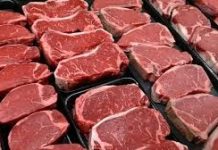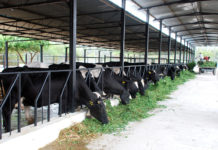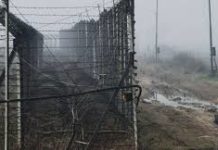While travelling from eastern Pakistan city of Lahore to Multan, one finds potato harvesting activity in the fields on both sides of the road. In addition to mechanized digging of the earth to bring the potatoes out, thousands of agriculture workers are also earning daily wages by picking the crop after digging the soil with small hand-handled implements. Like harvesting of major crops like wheat and cotton, the potato crop is also of seasonal nature, providing livelihood to millions of people , mainly in Punjab, the biggest province of Pakistan that produces some 83 percent of the total crop. This year, a bumper crop of 3.7 million tones of potatoes is expected while the total domestic demand has been estimated at 3 million. In addition to this, the dealers have off-loaded 0.3 million tones of carryover stock of previous year in the market, hiking the surplus to one million tones.
The yawning gap between the possible production and demand is going to depress the potato prices as the ex-farm price has already dropped to Rs 600 to 700 per 100 kilograms, leaving the growers with little margins. Growers believe that it is the faulty policies of the government that has made potato-growing non-profitable activity. Unlike the neighbouring countries, there is no subsidy on electricity tariff on the agriculture tubewells. This is not first time , the growers of potatoes in Pakistan will burn their fingers due to losses in this daily use crop. Be it bumper crop or poor harvest, the loser will be the farmer due to flawed agricultural marketing mechanism. In the year 2014, the prices of potatoes touched the historical level of Rs 80 per kg due to poor harvest in Punjab , mainly due to unfavorable weather conditions. The beneficiaries of this hike was the middle man (hoarders and dealers), neither consumers nor growers. Even in current glut season, the price of potato in the urban centres of Pakistan like Lahore, ranges from Rs 20 to 30, almost 4 times the ex-field price. When sold in the form of French fries and chips, the value addition increases the price of potato by 250 times. In the absence of state-owned procurement agency, the middle man has started purchasing the potato at prices as low as Rs 600 per 100 kg (quintel) and transferred the produce to cold storages. The quantity placed at the cold storages will be off-loaded in the open market at exorbitant prices. Again the beneficiary will be the middle man or investor.It is time for the government to step in and purchase half a million tonnes of produce to end the glut and sell the vegetable whenever the prices get stable. For this purpose, federal procurement agency, PASSCO and provincial food departments may be utilized to bring solace to the growers. If the farmers of the potato belt don’t get some relief, it may have severe implications for Pakistan’s federal government in political terms.















